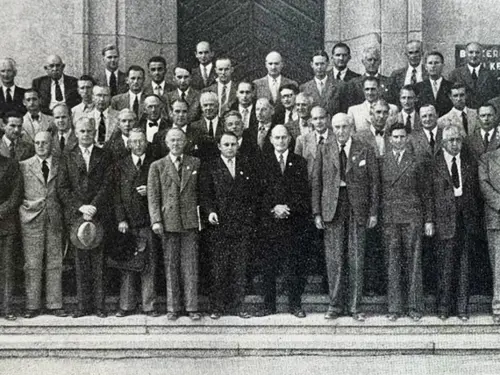
Advice and Tips
Working abroad
Many of Tekna’s members choose to work abroad on a short- or long-term basis. Read the useful information below if you’re planning on working overseas. Please note: the content of this page is targeted towards working for a Norwegian employer.
Tekna help you with…
- Legal advice in all phases of working abroad
- Reading through and providing feedback on your contract (remember to contact us before signing it!)
- Legal assistance during your overseas stay (none connected with foreign legal rules)
- Assistance if disputes arise (for Norwegian courts)
Tekna – your best career advisor
Need help writing a good application and CV? Or reviewing a job offer or contract?
Before signing your employment contract
Don’t sign any employment contract before getting an overview of the terms that’ll apply while you’re working abroad. You can get this information either from your own HR department or from that of the company you’ll be working for overseas.
Make sure to ask for detailed information on the following:
- How to handle taxes on all financial compensation, and what you yourself have to do with respect to the tax authorities in Norway/the country where you’ll be working
- Pension plans and insurance policies
- Questions about receiving social security and health care benefits
- Your employment conditions upon returning to Norway
Get clarification about the terms you can negotiate and those that are nonnegotiable.
Taxation
Tekna doesn’t offer tax advice, so find out if your employer offers this service. You should also ask the Norwegian Tax Authority about what rules apply to working overseas at skatteetaten.no.
Employment contract checklist when working abroad
This list contains the points that should be regulated in the employment contract that’ll apply while you’re working overseas.
- Employer and employee
- Which country’s laws apply to the posting and how any disputes are to be settled
- Duration of the employment relationship
- Workplace
- What happens if the foreign work assignment is terminated before the agreed expiration date
- What happens to your position when you return to Norway
- Daily and weekly schedule
- Vacation and vacation pay
- Salary, and who pays your salary
- Date for first salary adjustment
- What currency will be used, effects of possible exchange rate fluctuations
- Extra benefits: For example, covering moving costs, car, housing, certificates, insurance policies, pension, etc.
Having a home office when working abroad
Working a lot from home while living in a foreign country may have social security, health care and tax-related consequences for both employer and employee. The location where you’re actually physically working might affect where your employer pays employer and/or withholding taxes. You should also find out if you’ll be covered by your employer’s insurance when working abroad.
We recommend that you contact NAV (the Norwegian Labour and Welfare Administration) and the Norwegian Tax Authority to clarify if your plans either affect your membership in Norway’s National Insurance scheme or have tax-related consequences. If you’re planning on working from home while living abroad for a long period of time, your employer should seek tax-related legal advice.
What legal rules apply to working abroad?
You have to agree on whether Norwegian law or the workplace’s own law will apply to you while working abroad. There is freedom of contract with the exception of any nonnegotiable workplace laws. In addition to agreeing on which country’s law will apply, it’s important that you agree on the country where any disputes about the employment relationship will be settled. Tekna’s opinion is that in general, only Norwegian courts have the competency to handle these disputes.
As regards working in countries within the EEA and EU areas, the rules on posting employees has a joint set of rules that guarantee a minimum level of safety and security for employees in these areas. For further information see the Working Environment Act, sections § 1-7 and Regulations on Posted Workers.
It’s important to note that if you accept a job with a foreign employer that has no connection to Norway, that country’s laws will normally apply to you. Tekna has no prerequisite for evaluating these types of employment contracts.
Termination of foreign employment relationship
The contract should state something about what will happen to your employment relationship when you return to Norway after your foreign employment contract expires.
The contract should also indicate what will happen if the foreign-based work assignment is terminated before the contract has expired, in accordance with either your or your employer’s wishes. You should set a minimum requirement that the rules pertaining to employment protection in the Working Environment Act apply to this situation (unless local nonnegotiable rules prevent it).
Many people want to work abroad at some point in their lives, and several do so not long after finishing their education. Working abroad gives you an incredibly useful life experience, often providing you with a unique perspective on foreign languages and cultures that’ll last throughout your career.
Most employers appreciate employees who have worked overseas temporarily, so having done this could set you apart from other job applicants in a positive way. It’s a good idea to think about what you’ve experienced in a foreign country that gives you a unique perspective and how you can use this to help out a potential future employer.
If there are certain countries where you want to work, it’s important to find out where jobs in these countries are listed online (a website that’s similar to Norway’s finn.no). The Norwegian Labour and Welfare Administration (NAV) publishes a list of job postings in EEA countries (in Norwegian).
Tekna also has a well-developed network with engineering organizations through the European organization FEANI.
Your CV and cover letter might need to be written in a different format if you want to apply for overseas jobs. You should also make sure that the formal part of each application is correct.
It’s common practice outside of the Nordic countries to state your workplace accomplishments much more clearly. For example, «I’ve gotten __ number of new clients for my department» or «I’ve solved__ number of problems in the following manner».
It’s also important to include any certifications and/or awards you’ve gotten in your application. For example, «I graduated at the top of my class» or «I’m certified in _______».
It’s also common to write your title(s) next to your name on your CV (for example, Kari Normann, PhD). If you hold a Master’s degree in technology, you can apply to receive the title of EUR ING from FEANI as proof that you’ve got the necessary education and experience for working as an engineer.
Another point to remember is while it’s customary in Norway for employees and employers to have an informal tone at work, this informality might seem rude in other parts of the world.
Be sure to learn about the customs of the country where you’re applying to work, both when writing your application and/or taking part in an interview. This might involve everything from learning forms of address to dress codes. When starting out in a new job, it’s also important to read the «unwritten rules» with regard to work schedules, work formats and what’s expected of you. Finally, it’s important to build networks – both at work and outside of it – to get the most out of living and working abroad as well as help you crack the codes in your temporary “home away from home”.
Guest membership
If you’re living and working in Denmark, Sweden, Iceland, Finland or Australia, you can apply for a free guest membership in one of our associated organizations. Here’s an overview of the organizations we cooperate with in the Nordic countries and to Professionals Australia.
A guest membership is valid for up to 3 years, and while you’re considered a full member of both organizations during this time, you only make payments to Tekna. Remember that you also get a 50 % reduction of your membership dues when you have a private foreign mailing address. Your guest membership runs out either after 3 years or, alternatively, when your Tekna membership runs out.
You’ll find an application form (in Norwegian) here: Fill out and send to Tekna at [email protected]. We’ll forward it to the organization to which you’re applying, and they’ll get in touch with you.
If you’d like to apply for a guest membership in Tekna, please contact your own organization, and they’ll forward your application to us.




